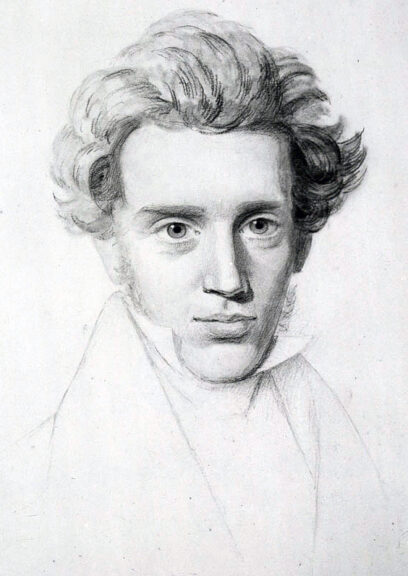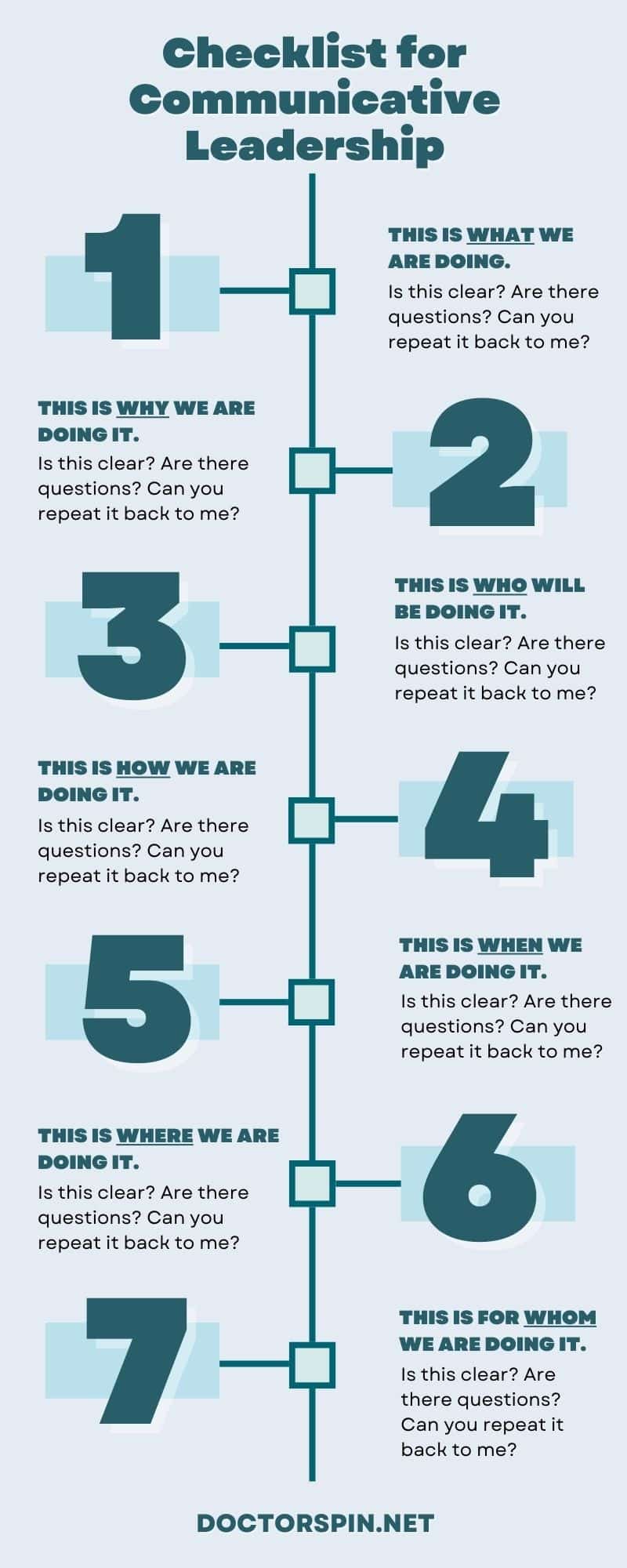Communicative leadership is a requirement for all leaders.
I sometimes argue that we need more leaders than we have. 1Silfwer, J. (2023, March 23). Overcoming the Leadership Gap (With Fewer Leaders). Doctor Spin | The PR Blog. https://doctorspin.net/leadership-gap/
Natural leaders are rare, but businesses need them in droves. Due to a lack of proper training and organisational bloat, weak leaders outnumber strong leaders by a staggering majority.
So, how do we make this equation work? In short, all leaders must learn to communicate better.
Here we go:
Communicative Leadership
Is excellent communication an outcome of outstanding leadership? Or is strong leadership a product of excellent communication? Either way, all leaders should prioritise developing their communication skills.
Good Communicative Leadership
What is required from communicative leaders? According to Catrin Johansson, Vernon Miller and Solange Hamrin: 2Johansson, C., Miller, V. D., & Hamrin, S. (2011, October 15). Communicative Leadership: Theories, Concepts, and Central Communication Behaviors. Demicom, Department of Media and Communication, … Continue reading
Poor Communicative Leadership
Conversely, non-communicative leaders are typically distinguished by these characteristics:
Learn more: Communicative Leadership in Organisations
The Checklist for Communicative Leadership
Being a great leader can be daunting. However, with effort (and attention to detail), all leaders can practice expressive and precise communication.
How can you ensure your leadership is expressive and precise in practical situations?
As a rule of thumb:
It’s generally better to “over-communicate” (tolerable added effort) than “under-communicate” (substantial added risk).
Make sure to pass these communicative leadership checks:
“Expressive and precise communication styles have a stronger link to leader outcomes than personality traits extraversion and conscientiousness.”
Source: Human Performance 3Bakker-Pieper, A., & Vries, R. (2013). The Incremental Validity of Communication Styles Over Personality Traits for Leader Outcomes. Human Performance, 26, 1 — … Continue reading
Communicative Leadership (Infographic)
Learn more: The Checklist for Communicative Leadership
Existentialism: Thought Leadership, Advisory, and Education
Regarding thought leadership, advisory, and education, I often remind myself of the beautiful words of the Danish existentialist Søren Kierkegaard (1813 – 1855): 4Søren Kierkegaard. (2023, November 27). In Wikipedia. https://en.wikipedia.org/wiki/S%C3%B8ren_Kierkegaard

According to Kierkegaard, servitude is the foundation for success for all aspiring thought leaders, advisers, salespeople, and educators:
“If one is truly to succeed in leading a person to a specific place, one must first and foremost take care to find him where he is and begin there.
This is the secret in the entire art of helping.
Anyone who cannot do this is himself under a delusion if he thinks he is able to help someone else. In order truly to help someone else, I must understand more than he — but certainly first and foremost understand what he understands.
If I do not do that, my greater understanding does not help him. If I nevertheless want to assert my greater understanding, then it is because I am vain or proud, then basically instead of benefiting him I really want to be admired by him.
But all true helping begins with a humbling.
The helper must first humble himself under the person he wants to help and thereby understand that to help is not to dominate but to serve, that to help is a not to be the most dominating but the most patient, that to help is a willingness for the time being to put up with being in the wrong and not understanding what the other understands.”
— Søren Kierkegaard (1813 – 1855)
Learn more: Existentialism for PR Advisers

THANKS FOR READING.
Need PR help? Hire me here.

What should you study next?
Spin Academy | Online PR Courses

Spin’s PR School: Free Leadership PR Course
Take advantage of this Free Leadership PR Course to sharpen your public relations skills and become a confident and influential leader in any industry.
Leadership Theory
Communicative Leadership
Bonus Articles
Learn more: All Free PR Courses
💡 Subscribe and get a free ebook on how to get better PR.

Annotations
| 1 | Silfwer, J. (2023, March 23). Overcoming the Leadership Gap (With Fewer Leaders). Doctor Spin | The PR Blog. https://doctorspin.net/leadership-gap/ |
|---|---|
| 2 | Johansson, C., Miller, V. D., & Hamrin, S. (2011, October 15). Communicative Leadership: Theories, Concepts, and Central Communication Behaviors. Demicom, Department of Media and Communication, Mid Sweden University. |
| 3 | Bakker-Pieper, A., & Vries, R. (2013). The Incremental Validity of Communication Styles Over Personality Traits for Leader Outcomes. Human Performance, 26, 1 — 19. https://doi.org/10.1080/08959285.2012.736900 |
| 4 | Søren Kierkegaard. (2023, November 27). In Wikipedia. https://en.wikipedia.org/wiki/S%C3%B8ren_Kierkegaard |



